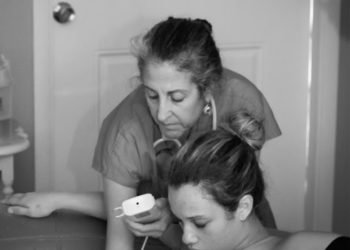Have you ever considered a home birth? If you’re pregnant, or if you’re considering becoming pregnant, you may have already heard of the many benefits of giving birth at home. Home birth is becoming increasingly popular, and it’s not hard to see why.
A home birth is a safe and comfortable way to welcome your child into the world. But what is home birth and how do you know if it’s right for you? In this guide, we’ll explore the different types of home birth, the benefits of having a home birth, and how to prepare for a successful home birth.
Introduction to Home Birth
Home birth is a birth that takes place in a home setting rather than in a hospital or birth center. They can be attended by a midwife or doula, or can be unassisted. Home births are becoming increasingly popular due to their safety, comfort, and low intervention.
The World Health Organization recommends that women give birth in an environment that is comfortable and familiar to them. Home births can provide this sense of comfort, as the mother is in her own home surrounded by her family and friends.
Types of Home Birth
There are several different types of home birth, depending on the mother’s preferences and the type of care provider she chooses. The most common types are unassisted birth, midwife-assisted birth, and doula-assisted birth.
Unassisted birth is one that is not attended by a midwife or doula. The mother will be alone or with her family or friends during the birth. This type of home birth is not recommended unless the mother is experienced in the birthing process.
Midwife-assisted birth are attended by a midwife. The midwife will provide medical care and support during the birth.
Doula-assisted birth is attended by a doula. The doula will provide emotional and physical support during the birth.
The Benefits
Home birth has many benefits for the mother and baby. It can provide a more comfortable and peaceful setting for the birth and can help reduce stress and anxiety. Home birth’s can also provide a more intimate experience for the family, as they are surrounded by their own people and belongings.
There are has some medical benefits. Studies have shown that a home birth has a lower risk of medical interventions such as cesarean section, forceps, and vacuum-assisted delivery. This can also reduce the risk of infection and reduce the need for pain medication.
Preparations
Preparing for a home birth is an important step in ensuring a safe and successful birth. It’s important to make sure that you have all the necessary supplies and equipment on hand.
You will need a birth kit, which should include items such as sterile gloves, sterilized scissors, gauze, and clean towels. You should also have a laboring tub or pool, as well as a birth ball, a birthing stool, and a birth stool. Make sure to have some snacks and drinks on hand for the mother and labor coach.
It’s also important to have a birth plan in place. A birth plan should include the mother’s preferences, such as her desired birthing positions and any pain relief methods she wishes to use.
Choosing a Midwife or Doula
If you’re planning a home birth, it’s important to choose a midwife or doula who is experienced and knowledgeable. You should look for a professional who has experience, is certified, and has good references.
Your midwife or doula should be able to provide you with information and guidance on how to prepare for a home birth, as well as answer any questions you may have. It’s also important to make sure that your midwife or doula is available and willing to attend your home birth.
Home Water Birth
Home water birth is a safe and comfortable way to give birth. Water birth’s can reduce the risk of tearing, as the water helps to relax the muscles of the perineum. It can also reduce the discomfort of labor, as the water can provide a soothing and relaxing environment.
If you’re considering a home water birth, it’s important to make sure that you have the necessary equipment and supplies. You will need a laboring tub or pool, as well as a birth ball and birthing stool. You should also have sterile gloves and scissors, as well as a thermometer and a clean towel.
Pregnancy Care and Postpartum Care
It’s important to make sure that you receive adequate prenatal and postpartum care if you’re planning a home birth. Prenatal care should include regular check-ups and tests to make sure that you and your baby are healthy. Postpartum care should include help with breastfeeding, healing, and adjusting to motherhood.
Your midwife or doula can provide you with the necessary care and support before, during, and after your home birth. They can also provide you with information and resources to help you prepare for a successful birth.
Tips for a Successful Home Birth
Having a successful home birth requires planning, preparation, and an experienced midwife or doula. Here are some tips:
- Make sure that you have all the necessary supplies and equipment.
- Have a birth plan in place and make sure that your midwife or doula is familiar with it.
- Make sure that your midwife or doula is experienced and knowledgeable.
- Take classes to learn about the birthing process and how to manage labor pain.
- Ask friends and family to help out during the birth and postpartum period.
- Have snacks and drinks on hand for the mother and labor coach.
- Make sure that the home is clean and comfortable.
- Stay informed and ask questions if you are unsure about anything.
Call Midwife360 For Your Palm Beach Home Birth Needs
Are you looking for an experienced midwife or doula to attend your home birth in Palm Beach? Look no further than Midwife360! Our team of experienced and certified midwives and doulas specialize in home birth.
Midwife360 provides comprehensive prenatal and postpartum care, as well as birth preparation and support. They also provide water birth services and can help you create a personalized birth plan.
If you’re looking for a safe, comfortable, and personalized experience in Palm Beach, call Midwife360!

















